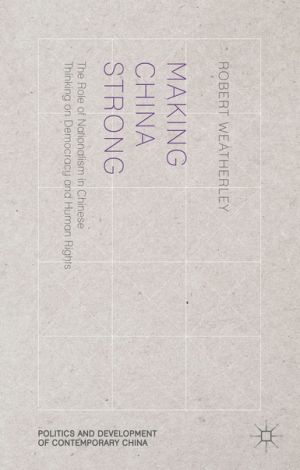We are now closed for the Christmas and New Year period, returning on Monday 5th January 2026. Orders placed during this time will be processed upon our return on 5th January.

Robert Weatherley examines the role of nationalism in Chinese thinking on democracy and human rights spanning four successive periods: the late Qing, the Republic, Mao's China and post-Mao China. During this time, many of the debates in China about democracy and rights have been tied to the question of how to make China strong. The trigger is usually a perceived threat from foreign imperialism. Following the outbreak of the First Opium War in 1839, this imperialism took a military form, leading many Chinese reformers to embrace a system of democracy and rights in order to protect China from further foreign encroachments. In more recent years, the perceived threat has come from cultural imperialism, most apparent, Beijing claims, when the West criticises China for its poor record on democracy and human rights. This has led to the evolution of a distinctively Chinese model of democracy and rights that differs significantly from that deriving from the West.